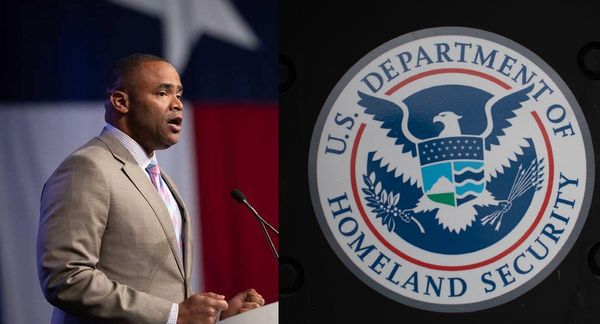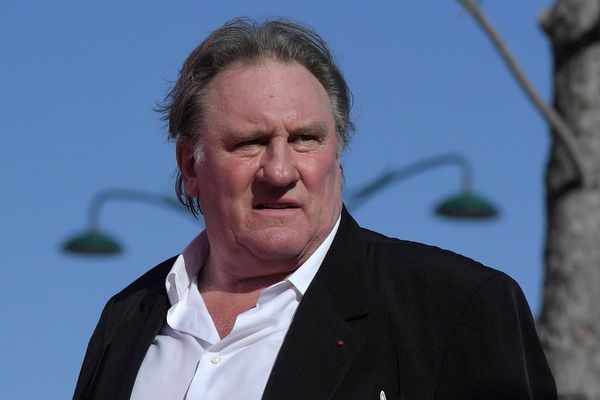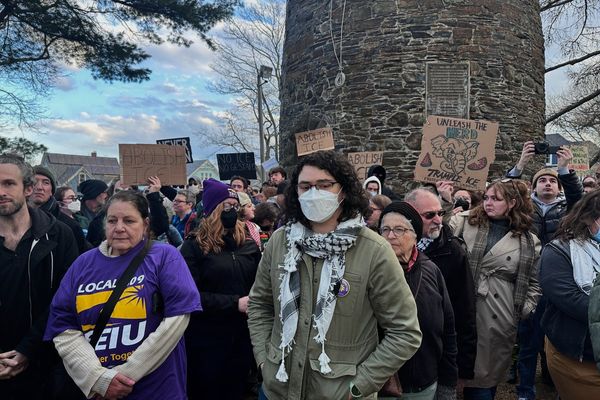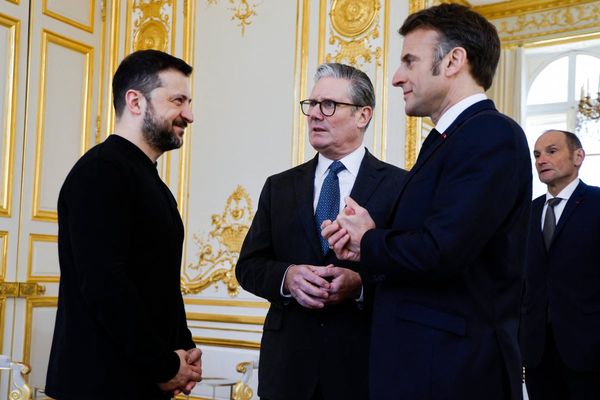
Ottawa (AFP) - President Joe Biden laid out a vision of world-leading US-Canadian economic cooperation in a speech to Canada's parliament Friday, and announced that the giant neighbors had reached a deal on curbing illegal migration.
Standing ovations by Canadian lawmakers punctuated Biden's roughly half-hour speech in Ottawa that was thick on praise for North American unity -- a sentiment matched earlier when Prime Minister Justin Trudeau delivered his own address.
"Americans and Canadians are two peoples, two countries, in my view sharing one heart," Biden said, getting cheers when he vowed Canada will "always be able to count on the United States."
Biden signalled a resolution to one irritant in the close relationship, with a deal on managing the growing issue of undocumented migration on their lengthy border.
"The United States and Canada will work together to discourage unlawful border crossings," he said.The arrangement will see undocumented asylum seekers crossing from the United States into Canada turned back, while Canada will simultaneously expand the pathway for legal entries.
The plan -- similar to a crackdown on the much more heavily used US-Mexican border -- has been criticized by migrants' rights activists.However, Biden and Trudeau are both under political pressure to relieve their badly strained immigration systems and Biden said that regardless, "welcoming refugees and asylum seekers is a part of who Canadians and Americans are."
The deal will have "devastating impacts on refugee claimants who are already at extreme risk," Amnesty International's Julia Sande told AFP."It will push people to more dangerous crossings in either remote areas or relying on smugglers."
Biden opened his speech with a nod to Canadian bilingualism, greeting parliamentarians with "good afternoon" and "bonjour" -- joking that this was as far as he'd got in four years of French at school.
And the bonhomie flowed from then on.
Biden laid out a vision of the neighbors being ever more closely bound with the joint goal of building high-tech economies and reinforcing supply chains for things like semiconductors and critical minerals used in electric vehicle manufacturing, saying: "We're going to write the future together."
Trudeau earlier greeted Biden at the parliament building, saying Canada has "no greater friend and ally than the United States" -- a message underlined through the gift to Biden of a chocolate bar from Peace by Chocolate, a brand started by Syrian refugees.
NORAD, China, Haiti
Face-to-face talks between Biden and Trudeau covered a range of areas where both sides are pushing for improvements.
The US government has been pressuring Canada to increase its defense spending, which in 2022 was just 1.33 percent of GDP.This is scheduled to rise to 1.59 percent from 2026, but that's still well below the NATO alliance requirement of a minimum two percent of GDP spending.
A joint statement said that Biden and Trudeau agreed to modernizing their countries' joint air defense alliance, NORAD, with Canada putting billions of dollars into improved radar and fighter aircraft infrastructure.
The two leaders also reaffirmed support for pro-Western Ukraine "for as long as it takes" in its war to push back Russian invasion, and issued a warning to China.
"Canada and the United States acknowledge the serious long-term challenge to the international order posed by the People's Republic of China, including disruptive actions such as economic coercion, non-market policies and practices, and human rights abuses," the statement said.
"While we will cooperate with China in areas of mutual interest, such as on climate change, we remain committed to ensuring our ability to compete effectively with China on a level playing field."
At a joint news conference with Trudeau, Biden said he believed China has not sent arms to Russia after President Vladimir Putin's forces invaded Ukraine, saying: "Doesn't mean they won't, but they haven't yet."
"I don't take China lightly.I don't take Russia lightly," he added, while also suggesting that reports of their rapprochement had probably been "exaggerated."
The United States and Canada are among the countries that have provided strong support to Kyiv.
Closer to home, the two leaders said they "remain concerned about deteriorating security in Haiti," but did not say whether progress had been made on long-discussed plans for an international intervention force to stabilize the chaotic Caribbean nation.
Trudeau announced an additional Can$100 million (US$73 million) in humanitarian relief and training for Haitian police, and a plan to welcome 15,000 more migrants from Haiti, Colombia, Ecuador and other nations in the Western Hemisphere.







